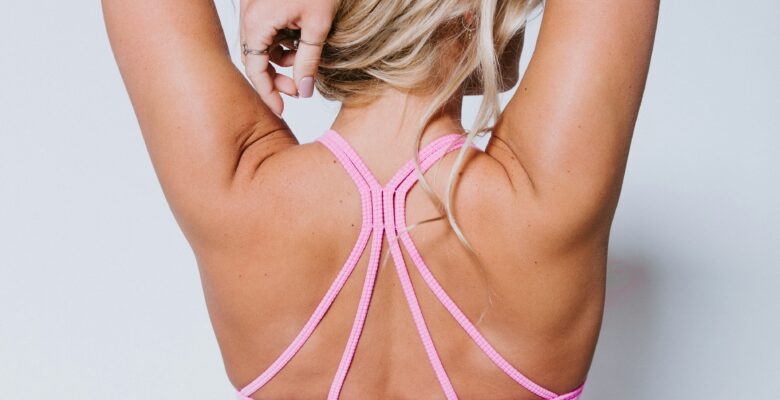Eating and exercise go hand in hand. during and what you eat can have an impact on how you feel during exercising. And it’s critical to consider what you eat when exercising, whether you’re doing a light workout or training for a competition. Consider implementing these eating and workout suggestions.
- Eat a nutritious breakfast.
A nutritious breakfast
Breakfast (enlarge image)
Get up early enough to finish breakfast at least one hour before your workout if you exercise in the morning. Before an exercise, make sure you’re properly fed.
According to research, eating or drinking carbohydrates before exercising will help you perform better during your workout. Carbohydrates may also assist you to exercise for longer periods of time or at a higher intensity. while you don’t eat, you may feel sluggish or lightheaded while you exercise.
Eat a light meal if you intend to workout within an hour of finishing breakfast. Alternatively, you might have a sports drink. Carbohydrates provide the most energy.
Breakfast options to consider include:
Cereals or bread made from whole grains.
Milk with a low fat content.
Juice.
It’s a banana.
Yogurt.
Also, if you normally drink coffee in the morning, it’s probably fine to consume a cup before your workout. Also, whenever you attempt a new food or drink before a workout, you run the chance of getting an upset stomach.
- Keep an eye on the serving size
When it comes to how much you eat before exercise, be careful not to overdo it. Following are some general guidelines:
Meals that are substantial. Consume these at least three to four hours before exercising.
Snacks or small meals. Eat these 1 to 3 hours before working out.
Eating too much before exercising can make you feel sluggish. Eating too little may not provide you with the energy you require to stay strong during your workout.
- Smoothie as a snack
Image enlargement Smoothie
Most people can consume tiny snacks prior to and during exercise. What matters is how you feel. Follow your instincts. Snacks taken just before exercise are unlikely to provide additional energy if your workout is less than 60 minutes. However, they may prevent you from feeling hungry.
If your training lasts more than 60 minutes, it may be beneficial to have a carbohydrate-rich food or drink during the activity. Snacks to consider include:
A power bar.
A banana, an apple, or another type of fresh fruit.
Yogurt.
Smoothie with fruits.
Crackers or a whole-grain bagel.
A granola bar with reduced fat.
A peanut butter and jelly sandwich.
Drinking water or diluted juice.
A healthy snack is especially crucial if you want to exercise for several hours after eating.
- Consume something after you exercise.
Fruit and yogurt
Image enlargement
Fruit and yogurt
Fuel your body for daily performance.
To discover more, view this infographic.
If feasible, have a meal with both carbohydrates and protein within two hours of your workout. Eating after exercise can assist muscles recover and replenish glycogen stores. If your supper is more than two hours away, consider eating a snack. Foods to eat after working out include:
Fruit and yogurt.
Sandwich with peanut butter.
Pretzels and low-fat chocolate milk.
Smoothie for post-workout recuperation.
With veggies and turkey on whole-grain bread.
- Drink plenty of water
consuming water
Image enlargement
Water
Remember to stay hydrated. To avoid dehydration, drink plenty of fluids before, during, and after exercise.
The American College of Sports Medicine suggests that you stay hydrated when exercising by:
2 to 3 cups (473 to 710 milliliters) of water should be consumed 2 to 3 hours before your workout.
During your workout, drink 1/2 to 1 cup (118 to 237 milliliters) of water every 15 to 20 minutes. Change the amounts according to your body size and the weather.
Drink around 2 to 3 cups (473 to 710 milliliters) of water after your workout for every pound (0.5 kilogram) lost.
In general, replacing lost fluids with water is the best option. If you’re going to be exercising for more than 60 minutes, try a sports drink. Sports drinks can assist in maintaining your body’s electrolyte balance. They can also provide you with a boost of energy because they contain carbs.
Allow experience to be your guide.
Remember that the duration and intensity of your activity can influence how frequently and what you should eat and drink. For example, running a marathon requires more energy from food than running or walking a few kilometers. Also, try not to introduce any new products into your diet before a long-lasting sporting event. It’s best to test the products ahead of time to see how your system reacts to the food.
Everyone is different when it comes to eating and exercising. So pay attention to how you feel during your workout and how what you consume affects your overall performance. Allow your experience to help you in determining which pre- and post-exercise eating habits are ideal for you. Consider keeping a journal to track how your body reacts to meals and snacks so you can adjust your diet for peak performance.
